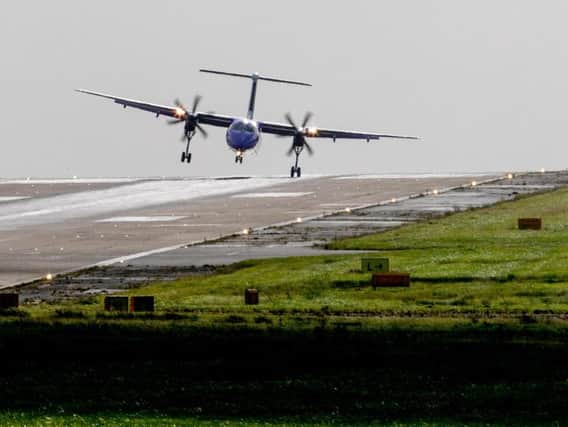This is why airlines like Flybe are suffering from a shortage of pilots


But just what are the reasons why fewer trained pilots are entering the industry, despite the job being well-paid, high-status and with excellent travel opportunities?
Advertisement
Hide AdAdvertisement
Hide AdBoeing predicted that the aviation sector would need 800,000 new pilots in the next 20 years - double the number currently flying.
Mass retirements
The retirement age for commercial pilots is set at 65, meaning it's not possible for those who are fit and well enough to work for longer, and alleviate shortages, to do so. In the UK, the post-war 'Baby Boomer' generation - a demographic bulge - are approaching retirement age.
Many experienced pilots were traditionally recruited from the military - such as former WW2 flying aces - but as air forces have contracted and there have been fewer global conflicts, new entrants are typically civilians when they join airlines. Most of the ex-military pilots are nearing retirement, and many - such as the Vietnam War generation - have already left service.
Expensive training
Training requirements have also increased - you now need more practice hours to qualify, which is expensive. Since 2013, American co-pilots have been required to have 15,00 hours of flying time completed rather than 250. You need a further 1,000 to become a captain.
Advertisement
Hide AdAdvertisement
Hide AdSome training providers have begun offering 'economy' courses to encourage more trainees to take up flying, as packages can cost over £100,000. Yet others have warned that airlines are selective about the courses they recruit candidates from and may reject those who have taken a cheaper route.
Even once a pilot has completed their initial training and has gained a Commercial Pilot Licence, they often have to pay for conversion training allow them to fly their new employer's aircraft. Collapsed carrier Monarch asked for £30,000 in advance to fund this, and other airlines offer 'golden handcuffs' contracts whereby training is funded in exchange for a specified length of service with the carrier.
In the UK, the Civil Aviation Authority issued 31 per cent fewer Commercial Pilot Licences between 2011 and 2015. Many cadets at British flight schools now come from abroad for the quality of the training.
Market forces
Growing airlines based in booming new markets in the Middle East and Asia Pacific regions have also been poaching experienced pilots from Europe, the US and Australia by offering attractive expat living packages and higher salaries. These carriers are expanding more quickly than they can train local candidates.
Advertisement
Hide AdAdvertisement
Hide AdRyanair has had well-documented issues with pilot shortages and has taken steps to streamline pilot training. It's also considering moving to a single-aircraft fleet, as rival Easyjet already has. They had to increase pilots' pay by 20 per cent in 2017 to offset the issues.
A former Monarch pilot said that when the budget airline - which flew from Leeds Bradford - collapsed in 2017, almost all of their 420 pilots were re-employed by rivals immediately. It was such a seller's market that some of them had multiple job offers to pick from.
Flybe first drew attention to the issue in 2016, when they claimed the shortfall was impacting on their expansion plans.